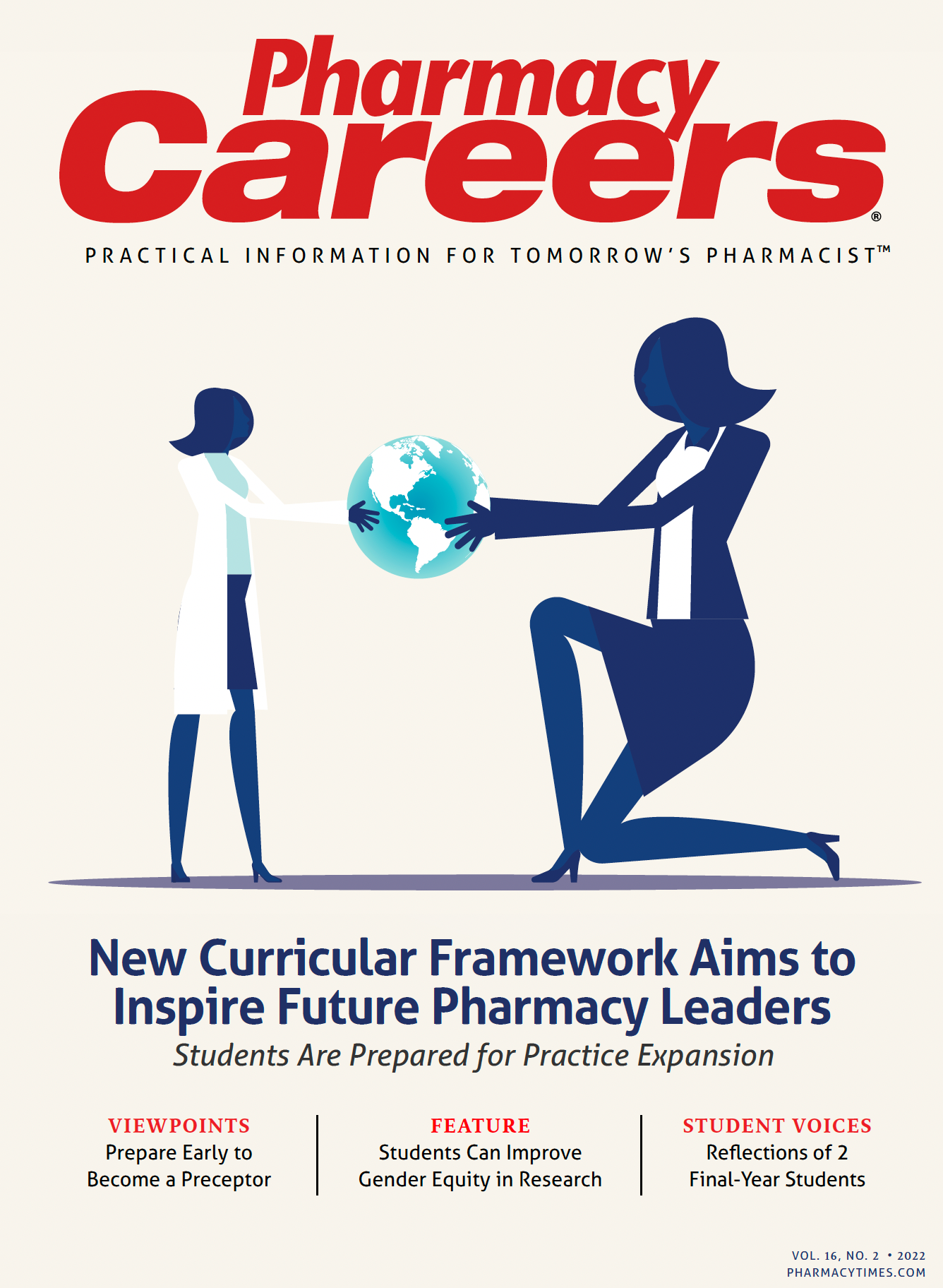Five Tips for a Successful Transition From the Third to Fourth Year of Pharmacy School
Students should ask questions and stay engaged in their education.
Entering the fourth year of pharmacy school advanced pharmacy practice experiences (APPEs) can be intimidating after 3 years in a controlled classroom environment. Although working directly with patients can be stressful at times, remaining engaged and viewing this as the greatest learning opportunity of the pharmacy school experience is crucial to students’ growth as pharmacists. Below are 5 tips to get the most from your fourth year of pharmacy school and APPE rotations.
Be professional. Arrive on time. If your rotation begins at 8 AM, get there earlier and be ready to start work on time. Preparation prior to the first day is also key. The day before a new rotation, pack a notebook and pen and know where to go on your first day. On the day itself, give yourself plenty of time to prepare and arrive. In addition to professional dress and timeliness, professionalism also includes good behavior at all times and respect for peers, preceptors, clinical staff, and patients. In addition to these professional skills, faculty will teach you how to optimize a patient’s medications and appropriately draw a physician’s attention to medication errors. All of these skills take time to learn and develop, but entering a new rotation prepared to learn is a crucial first step.
Be engaged and ask questions. Although there is a formal curriculum during APPEs, it is different from that of the first 3 years of pharmacy school. The daily learning objectives aren’t always listed in chronological order at the beginning of a PowerPoint presentation. Daily schedules provide a framework for learning, but patients can be unpredictable. The fourth year is the time to ask questions. Why is this patient not on the first-line agent for this condition? Why is the patient not on the standard dosage for this medication? The answers will reinforce what you learned during the first 3 years of training. Asking questions also shows the preceptor and clinical team that you’re paying attention and want to maximize learning opportunities and provide optimal care for each patient.
Focus on the patient. Fourth-year APPEs differ from third-year coursework in many ways, particularly in terms of direct interaction with patients. In addition to clinical knowledge, working with patients requires soft skills that may not come naturally but are vital to providing care. For example, when performing a medication reconciliation, you should glance up from your computer or medication list and make eye contact with the patient. Focus on each patient and start building a relationship. Although you may not be a full-fledged pharmacist, you are not there simply to check a box. Listen to patients and understand their needs and priorities. A medication reconciliation is the perfect time to educate patients about their prescriptions and improve health literacy. Take this opportunity to teach patients the names of medications, what conditions they manage, how and when to take them, and why they are important for maintaining their health. Every bit of information counts.
Study every day. Study schedules are essential during the first 3 years of pharmacy school to keep up with assignments and exams. During the fourth year, however, studying is more self-determined. One way to ensure dedicated study is setting aside time each evening to read up on interesting topics or issues you encountered during the day’s rotation. Because APPEs cover a wide variety of clinical settings, it’s a good idea to brush up on information pertaining to every rotation. A notebook or notes app can help you remember topics to research later. Developing these learning habits early will greatly benefit your career. As health care professionals, pharmacists will have to learn continually during the course of their careers without exams to reinforce their habits.
Seek feedback. To improve, you must actively seek out the preceptor’s advice. Preceptors have chosen to teach fourth-year pharmacy students, and they want you to succeed. If you’re unsure about your progress, the preceptor is there to help. They may even tailor their advice to help you get the most from your rotation. Part of being a professional entails seeking advice from mentors and peers and being willing to accept an outsider’s evaluation of your performance. All pharmacy students want to be the best pharmacists they can be, and there will be many individuals who will be ready to help them succeed.
Moving from the classroom to APPE rotations is no small step. With continued dedication and a willingness to learn, however, you can take full advantage of your fourth year of pharmacy school.
About the Author
Shawn Humphreys is a fourth-year pharmacy student at the West Virginia University School of Pharmacy in Morgantown and hopes to work in a hospital setting after graduation.

